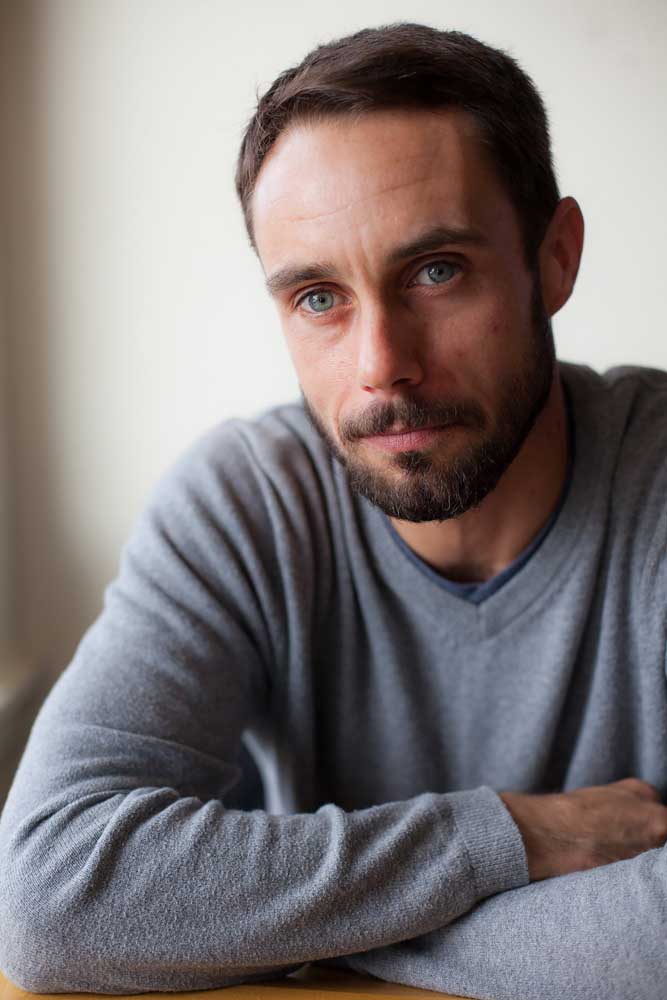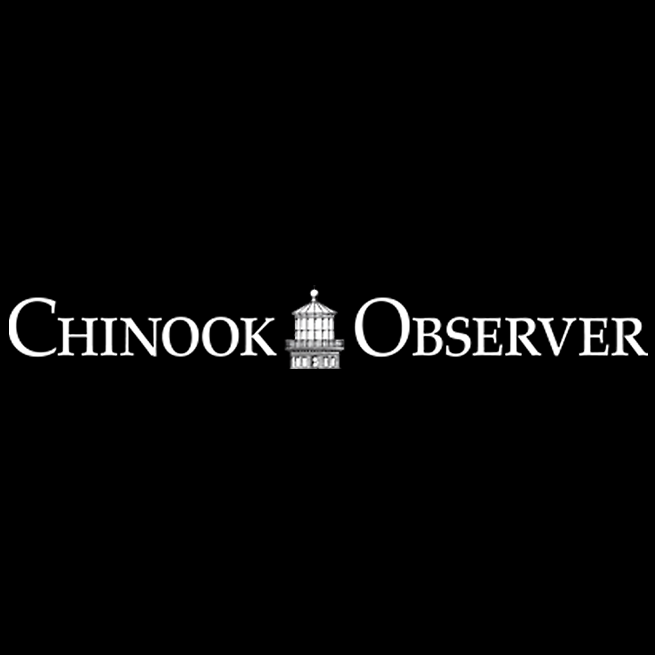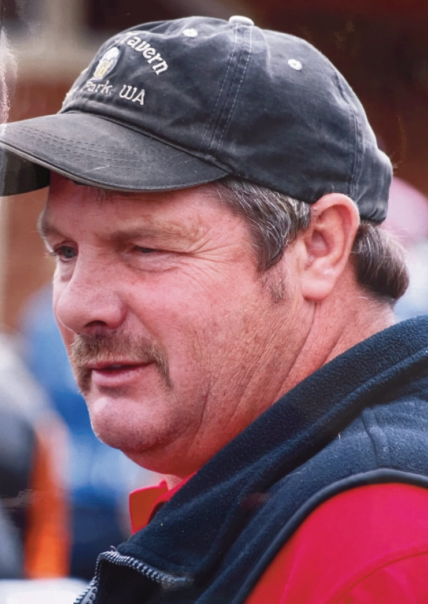It’s My Thing Drew Foster’s passion for writing goes ‘beyond enjoyment’
Published 11:58 am Tuesday, August 1, 2017

- Long Beach Peninsula Visitors Bureau's Drew Foster is passionate about writing, especially narrative non-fiction, but admits “a passion is something that goes beyond enjoyment. It will always present a challenge. It can never be conquered.”
SEAVIEW — “Writing has always been a huge part of my life. At times it was the only thing I was good at in school. I knew that I wanted to focus on it,” said Drew Foster over a cup of coffee recently.
Trending
Originally from the Bay Area of California, Foster moved from San Jose to the big island of Hawaii when he was 14. It was around that time that he started considering his future and began writing for his high school newspaper, but it was short lived.
“I was promptly asked to leave that class because the articles I wanted to write were more ‘newsy’ than what they had in mind,” he said.
It was wasn’t long before he was volunteering at his hometown paper, the West Hawaii Today.
Trending
“I wanted to be around the reporters, around the action,” he said.
Instead, he was given the menial job of digitizing microfilm, which soured him some.
“The publisher told me I’d never work in newspapers,” Foster said. “I’d never have a career. It was really satisfying five years later to prove him wrong.”
Foster went on to work for a series of publications, including a Hawaiian high school sports magazine and the University of Hawaii athletic department, before moving on to the staffs of a number of newspapers in the U.S and south Asia.
“Wyoming, the eastern side of Washington, I worked for newspapers in Cambodia,” he explained.
After returning to the states, Foster found himself at the Tri-Cities Herald in Kennewick, where he was one of the writers dismissed during a round of layoffs in 2014. Unemployed for six months he began looking outside his normal “box” for work and found an ad for the recently opened marketing communications coordinator at the Long Beach Peninsula Visitors Bureau.
“Six months had gone by and I didn’t get any job offers. And the job came up at the visitors bureau in a place I’d never heard of. It was a job I really hadn’t considered,” he said.
But he liked the look of the place and the fact that he would be doing a lot of things he had enjoyed while working as a newspaper writer.
And the move was a good one, as he enters his third year in the job later this month. In that time Foster has integrated himself into the community. He’s engaged to marry Ilwaco High School graduate Kady Kirby this winter and has started a small business on the side, called Drawing Board Creative Services (www.bit.ly/2vbir9B).
“It’s Facebook marketing,” he said. “Originally my idea was website content writing. Blogging and small publication writing for small businesses. It’s an extension of wanting to be a writer.”
You had told me previously that to you, “a passion is something that goes beyond enjoyment.” What did you mean by that?
“I think that a passion has to be challenging. And challenges aren’t always fun. A passion is going to make you uncomfortable at times. Is going to frustrate you at times. But if you’re really passionate about it you’re going to keep moving forward and trying different things to make it work. It keeps it interesting.”
What challenges have you faced in this pursuit?
“I took a couple years off from journalism to try and make it as a fiction writer. To try and make a living at it. And I couldn’t do it, that’s why I went back to journalism.”
Why do you think you weren’t able to do that?
“There are a lot of people who are also trying to do that and it’s just a very competitive field. You don’t make hardly any money, so you kinda have to have a second job. Then any free time you have is dedicated to writing. It’s a difficult lifestyle. It’s kinda lonely, but I gave myself two years to either get a book published or to have a certain number of magazines accepting my work to make it work financially, and that didn’t happen. That was a challenge. I don’t know if I thought it would be easier? Or if I was just tenacious enough, it would happen, and it didn’t?”
What kind of fiction stuff were you working on?
“It sounds really pretentious, but literary fiction. Non-genre. I like to think of it more like real life. Not writing about superheroes or detective stories. It’s character-driven, instead of being plot-driven. And maybe that made it harder too, that I was’t trying to reach a certain niche or genre?
“Anytime I’m passionate about something there’s a lot of self-doubt that goes along with that. I also think that if you want to be a good writer you have to be a good reader. And when you read people who are genuinely great writers it makes you question yourself and if you have what it takes to be a part of that. It’s a mental thing. Hours of work and dedication. You’ll find yourself halfway through a novel and wonder to yourself, ‘why am I dedicating all of this time to something that probably will never see the light of day?’ Those are questions you have to get over.”
And what was the answer for you?
“It’s still one I’m trying to figure out. I recently have been thinking that to be a writer I don’t necessarily have to be a fiction writer. All of my writing success has come in non-fiction, whether it be journalism awards or being employed as a feature writer, or being approached about helping to write memoirs. I really think that creative non-fiction is probably where I’m best suited. I’m going to keep writing fiction, I love doing that, but maybe my success lies in creative non-fiction?”
You told me previously that writing is what makes you feel “accomplished and whole.” But also, “it can never be conquered.” When would you say writing became this for you?
“It’s something that probably happened when I worked as a reporter. I realized there are so many different ways to tell a story. And if you ever get comfortable enough where you think, ‘man, I’ve got this,’ you’re selling yourself short. You’re limiting yourself if you think you already have it figured out. You always have to leave room for improvement.”
You obviously take writing very seriously, but is it something that actually brings you joy?
“Yeah it does. You know, as a writer when you’re nailing it, or when you’re on to something good. When you get that feeling, it’s exciting and energizing. That’s what drives me. I love that feeling. Even if it’s something simple like Facebook marketing, if you put up a post with those two concise sentences that work really well with the image and you start seeing the engagement. You can kinda get a little rush out of that too — those little successes.”
What type of writing interests and inspires you the most?
“I get a lot of inspiration from reading. I’d say the first time I read David Foster Wallace I had this feeling that I had waited my whole life to read this style of writing. Very conversational and in-depth and intellectual. I like that type of writing that is heavily descriptive, often with a narrative style with it. It just elevates a regular story. Even in Facebook marketing, there are ways to weave that in. Give it more of a personal slant. It’s more intimate and gets people more in touch with the story.”
How has the pursuit of your passion changed you over time?
“It’s made me more of a listener. And I have kind of a quiet personality. Some people might think I’m a bit aloof or not paying attention, but I think that it’s a lot of listening and observation. I also learned as a reporter when to shut up. I know when to just be quiet and let somebody talk. And I think that really helps in writing too. Just sit back and be quiet and watch and listen and let things come to you instead of forcing the issue or driving the conversation.”
Can you give an example of something you’ve written that has made you feel, as you say, “accomplished and whole?”
“I do have a little bit of short fiction out there on a very obscure website called Literary Yard. And that is something that has made me feel accomplished. When you write fiction and you don’t have anything published, that’s the number one goal in life is to be able to call yourself a published author.”
What were the stories about?
“One of them took place in Cambodia. When I lived over there I really liked the barbershops. There were different levels. You could get your hair cut on the street for 2 bucks. You sit in their barber chair on the sidewalk and they trim your hair. Or you could pay 10 and go to a nice salon where they serve you tea and woman massages your shoulders and someone else cuts your hair. It’s an experience. You get a nice shave with this big straight razor. So I would do that regularly. And I would think, ‘who are these people that are cutting my hair?’ And I really thought about it with the straight razor, because in Cambodia, pretty much everybody over a certain age is linked to the Khmer Rouge or most of their family was killed by it. So death is a very intimate subject. So I would think about, ‘who is this man that has a straight razor pressed to my neck? And has he ever taken that step of taking a life?’ It was a short story about an ex-pat getting a haircut and at that same time kinda considering everything around him and his position in the country. It was an example of something more character driven. The other one was about guy who was marooned at sea and his thought process in how to stay alive in the ocean. The thing I was playing with there was a lack of setting to work with. You’re just stuck on this boat out in the middle of the ocean and almost all of the dialogue and everything is inside this man’s head. About a man considering his position in life as he’s facing death.”
Anything in the works now that you think is of the same quality?
“Yeah, I had a novel halfway written that I was fairly excited about, but once I started my little business a couple months ago, I really put that on the back burner. All of my free time is dedicated to working right now. Not doing hardly any creative writing.”
It’s sometimes hard to ‘justify’ the time for creative pursuits
“And that’s a whole other can of worms. Justifying the time. There’s a book called ‘On Writing’ by Stephen King. Great, great book. And he talks about treating creative writing like a job. If you want to become a published author, you create time to do it every single day, like going to work. And I really buy into that. So if I don’t have the time to set aside at least three hours a night, four times a week, than I almost don’t want to be writing creatively. It just doesn’t feel like it’s worthwhile. I mean, it takes time to get warmed up and there has to be consistency to it or you lose the thread of whatever you’re writing about. And man, it’s a lonely style of life. I’m very thankful I have a finance I want to spend time with, instead of just sitting in front of a laptop every single night, banging away on a keyboard.”
Foster’s Fiction:
Considering the Razor’s Edge: www.bit.ly/2tyIWnp
Saint Peter’s Prescience: www.bit.ly/2vv9Cag









